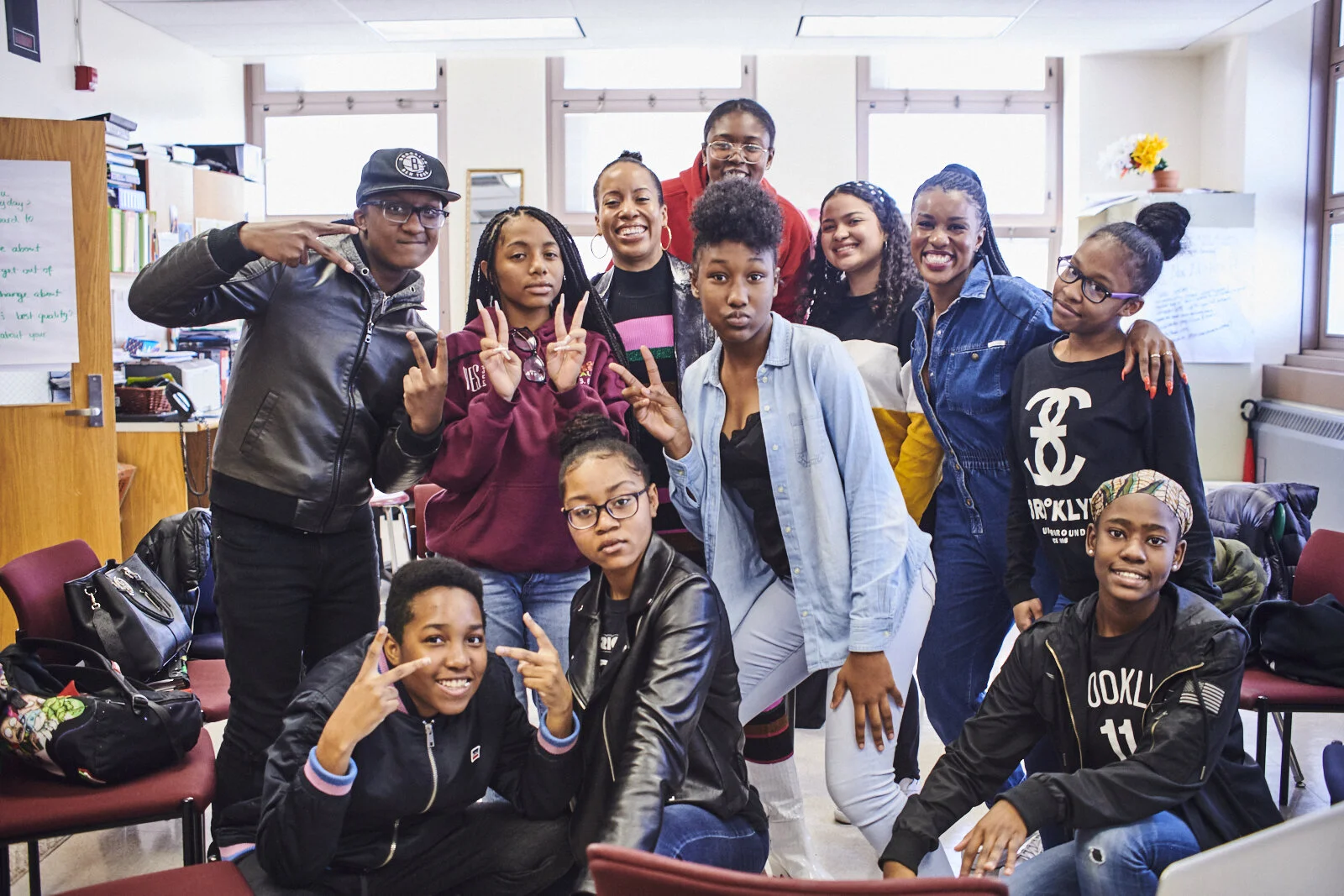A thriving industry is built on inclusivity, mutual support, transparency, and honesty. These principles can help us build community and accountability for ourselves and our colleagues.
Access other chapters + learn more about Beyond the Bill here
Only through an authentic willingness and dedication to improving ourselves will the industry evolve to be truly inclusive of all people. Fostering mutual support looks like individual action, rooted in a spirit of generosity that is able to sustain us far beyond professional expectations.
Respect and dignity for all are paramount to these changes—not incidental. Who we are in all our interactions, whether public or private, contributes to our shared sense of responsibility.
Community-minded practices can become the standard. We can all choose to work and interact in ways that protect and support everyone in their personal and professional growth.
CONSIDERATIONS FOR FOSTERING COMMUNITY:
How can I embody a culture of collaboration and care within the industry (as opposed to the competitive, “lone wolf” model)?
What privileges do I hold? How can I leverage my proximity to power?
Can I facilitate connections between industry members?
How can I use my privilege to speak up against injustices within the industry?
Who is already doing the work around the injustices in our industry? How can I collaborate with or support those organizations?
Am I accepting work conditions or rates that undermine industry standards? What will accepting unfair wages or conditions mean for my colleagues?
How can I use my time or resources to empower workers who are marginalized?
Do I have the capacity to offer mentorship to new and mid-career workers?
Am I sharing resources — such as job, internship, and contract opportunities, calendars with deadlines for grants and contests, and email contacts for hiring parties?
Am I available to share my expertise, write recommendation letters, review portfolios or grant proposals, etc.?
Can I organize an initiative, such as a print sale or workshop, to support lens-based workers or organizations working around injustices in our industry?
Am I a member of an organization that advocates for my rights and the rights of others in my industry?
How can I make space for my underrepresented colleagues?
If I am unavailable for work, am I prepared to recommend underrepresented lens-based workers who have had fewer opportunities to take assignments? If I know someone else may be better suited because of their perspective or background, am I prepared to pass on work?
If asked to speak on a panel, judge a contest, or join a board, am I prepared to challenge the organization if they are not practicing inclusivity nor committed to accessibility? Am I prepared to explain why this is an issue and decline if actions are not taken to address the issue?
How can I promote other people’s work both in conversation and in digital spaces?
How am I holding myself accountable? How am I holding my peers accountable?
How can I work to end abuse, harassment, and discrimination inside the industry?
Am I meaningfully, constructively engaging in discussions with my peers and colleagues?
Am I centering the voices of Black, Indigenous, people of color (BIPOC); the working class; women; people with disabilities; and nonbinary, transgender, and queer people?
Am I refraining from tone policing, gaslighting, discrediting, bullying, or otherwise harassing my colleagues?
Am I being silent or complicit in the abuse of colleagues because I am able?
We hope our industry colleagues feel inspired to engage in thoughtful dialogue around these issues as well as establish ever-evolving practices of personal and institutional accountability.
“Beyond the Bill of Rights” is intended to be a supplement to the Photo Bill of Rights. We encourage you to also explore:
The toolkits, which offer email templates, guiding questions and considerations for workers and hiring parties, as well as detailed suggestions for action items. These toolkits are living documents that will change and expand over time.
The glossary, which expands on terms used throughout the Bill of Rights, to build a better understanding of the importance of everyday language and how using language thoughtfully encourages critical, reflective thinking.
The list of resources, which offers additional references and literature that will help provide context for the issues that led to the creation of the Photo Bill of Rights and all additional documentation.
PHOTO CREDITS: Jai Lennard (Color-Positive)



